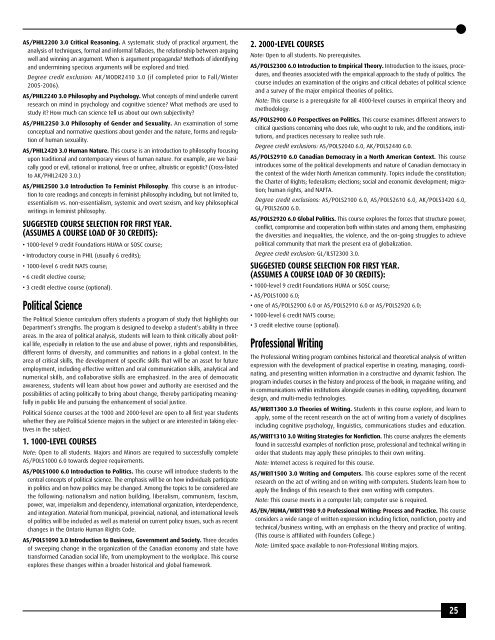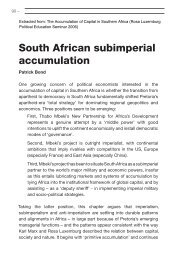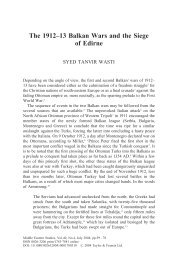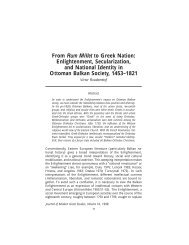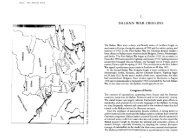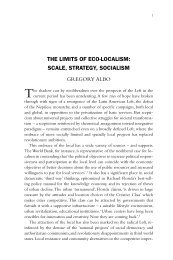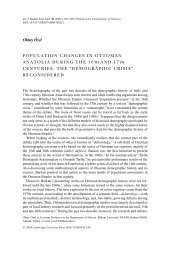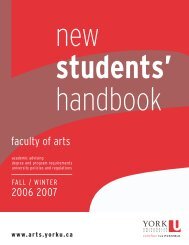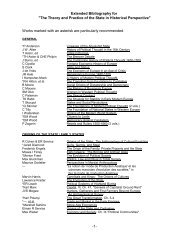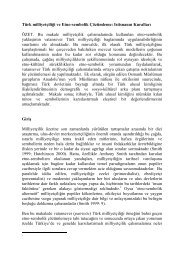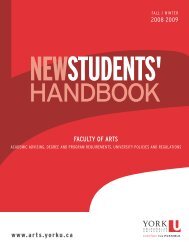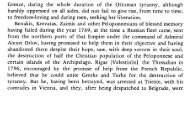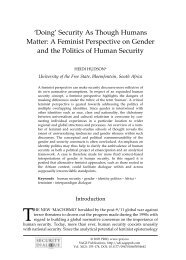FYCSG 05/06 REV2 - Faculty of Arts - York University
FYCSG 05/06 REV2 - Faculty of Arts - York University
FYCSG 05/06 REV2 - Faculty of Arts - York University
Create successful ePaper yourself
Turn your PDF publications into a flip-book with our unique Google optimized e-Paper software.
AS/PHIL2200 3.0 Critical Reasoning. A systematic study <strong>of</strong> practical argument, the<br />
analysis <strong>of</strong> techniques, formal and informal fallacies, the relationship between arguing<br />
well and winning an argument. When is argument propaganda? Methods <strong>of</strong> identifying<br />
and undermining specious arguments will be explored and tried.<br />
Degree credit exclusion: AK/MODR2410 3.0 (if completed prior to Fall/Winter<br />
20<strong>05</strong>-20<strong>06</strong>).<br />
AS/PHIL2240 3.0 Philosophy and Psychology. What concepts <strong>of</strong> mind underlie current<br />
research on mind in psychology and cognitive science? What methods are used to<br />
study it? How much can science tell us about our own subjectivity?<br />
AS/PHIL2250 3.0 Philosophy <strong>of</strong> Gender and Sexuality. An examination <strong>of</strong> some<br />
conceptual and normative questions about gender and the nature, forms and regulation<br />
<strong>of</strong> human sexuality.<br />
AS/PHIL2420 3.0 Human Nature. This course is an introduction to philosophy focusing<br />
upon traditional and contemporary views <strong>of</strong> human nature. For example, are we basically<br />
good or evil, rational or irrational, free or unfree, altruistic or egoistic? (Cross-listed<br />
to AK/PHIL2420 3.0.)<br />
AS/PHIL2500 3.0 Introduction To Feminist Philosophy. This course is an introduction<br />
to core readings and concepts in feminist philosophy including, but not limited to,<br />
essentialism vs. non-essentialism, systemic and overt sexism, and key philosophical<br />
writings in feminist philosophy.<br />
SUGGESTED COURSE SELECTION FOR FIRST YEAR.<br />
(ASSUMES A COURSE LOAD OF 30 CREDITS):<br />
• 1000-level 9 credit Foundations HUMA or SOSC course;<br />
• Introductory course in PHIL (usually 6 credits);<br />
• 1000-level 6 credit NATS course;<br />
• 6 credit elective course;<br />
• 3 credit elective course (optional).<br />
Political Science<br />
The Political Science curriculum <strong>of</strong>fers students a program <strong>of</strong> study that highlights our<br />
Department’s strengths. The program is designed to develop a student’s ability in three<br />
areas. In the area <strong>of</strong> political analysis, students will learn to think critically about political<br />
life, especially in relation to the use and abuse <strong>of</strong> power, rights and responsibilities,<br />
different forms <strong>of</strong> diversity, and communities and nations in a global context. In the<br />
area <strong>of</strong> critical skills, the development <strong>of</strong> specific skills that will be an asset for future<br />
employment, including effective written and oral communication skills, analytical and<br />
numerical skills, and collaborative skills are emphasized. In the area <strong>of</strong> democratic<br />
awareness, students will learn about how power and authority are exercised and the<br />
possibilities <strong>of</strong> acting politically to bring about change, thereby participating meaningfully<br />
in public life and pursuing the enhancement <strong>of</strong> social justice.<br />
Political Science courses at the 1000 and 2000-level are open to all first year students<br />
whether they are Political Science majors in the subject or are interested in taking electives<br />
in the subject.<br />
1. 1000-LEVEL COURSES<br />
Note: Open to all students. Majors and Minors are required to successfully complete<br />
AS/POLS1000 6.0 towards degree requirements.<br />
AS/POLS1000 6.0 Introduction to Politics. This course will introduce students to the<br />
central concepts <strong>of</strong> political science. The emphasis will be on how individuals participate<br />
in politics and on how politics may be changed. Among the topics to be considered are<br />
the following: nationalism and nation building, liberalism, communism, fascism,<br />
power, war, imperialism and dependency, international organization, interdependence,<br />
and integration. Material from municipal, provincial, national, and international levels<br />
<strong>of</strong> politics will be included as well as material on current policy issues, such as recent<br />
changes in the Ontario Human Rights Code.<br />
AS/POLS1090 3.0 Introduction to Business, Government and Society. Three decades<br />
<strong>of</strong> sweeping change in the organization <strong>of</strong> the Canadian economy and state have<br />
transformed Canadian social life, from unemployment to the workplace. This course<br />
explores these changes within a broader historical and global framework.<br />
2. 2000-LEVEL COURSES<br />
Note: Open to all students. No prerequisites.<br />
AS/POLS2300 6.0 Introduction to Empirical Theory. Introduction to the issues, procedures,<br />
and theories associated with the empirical approach to the study <strong>of</strong> politics. The<br />
course includes an examination <strong>of</strong> the origins and critical debates <strong>of</strong> political science<br />
and a survey <strong>of</strong> the major empirical theories <strong>of</strong> politics.<br />
Note: This course is a prerequisite for all 4000-level courses in empirical theory and<br />
methodology.<br />
AS/POLS2900 6.0 Perspectives on Politics. This course examines different answers to<br />
critical questions concerning who does rule, who ought to rule, and the conditions, institutions,<br />
and practices necessary to realize such rule.<br />
Degree credit exclusions: AS/POLS2040 6.0, AK/POLS2440 6.0.<br />
AS/POLS2910 6.0 Canadian Democracy in a North American Context. This course<br />
introduces some <strong>of</strong> the political developments and nature <strong>of</strong> Canadian democracy in<br />
the context <strong>of</strong> the wider North American community. Topics include the constitution;<br />
the Charter <strong>of</strong> Rights; federalism; elections; social and economic development; migration;<br />
human rights, and NAFTA.<br />
Degree credit exclusions: AS/POLS2100 6.0, AS/POLS2610 6.0, AK/POLS3420 6.0,<br />
GL/POLS2600 6.0.<br />
AS/POLS2920 6.0 Global Politics. This course explores the forces that structure power,<br />
conflict, compromise and cooperation both within states and among them, emphasizing<br />
the diversities and inequalities, the violence, and the on-going struggles to achieve<br />
political community that mark the present era <strong>of</strong> globalization.<br />
Degree credit exclusion: GL/ILST2300 3.0.<br />
SUGGESTED COURSE SELECTION FOR FIRST YEAR.<br />
(ASSUMES A COURSE LOAD OF 30 CREDITS):<br />
• 1000-level 9 credit Foundations HUMA or SOSC course;<br />
• AS/POLS1000 6.0;<br />
• one <strong>of</strong> AS/POLS2900 6.0 or AS/POLS2910 6.0 or AS/POLS2920 6.0;<br />
• 1000-level 6 credit NATS course;<br />
• 3 credit elective course (optional).<br />
Pr<strong>of</strong>essional Writing<br />
The Pr<strong>of</strong>essional Writing program combines historical and theoretical analysis <strong>of</strong> written<br />
expression with the development <strong>of</strong> practical expertise in creating, managing, coordinating,<br />
and presenting written information in a constructive and dynamic fashion. The<br />
program includes courses in the history and process <strong>of</strong> the book, in magazine writing, and<br />
in communications within institutions alongside courses in editing, copyediting, document<br />
design, and multi-media technologies.<br />
AS/WRIT1300 3.0 Theories <strong>of</strong> Writing. Students in this course explore, and learn to<br />
apply, some <strong>of</strong> the recent research on the act <strong>of</strong> writing from a variety <strong>of</strong> disciplines<br />
including cognitive psychology, linguistics, communications studies and education.<br />
AS/WRIT1310 3.0 Writing Strategies for Nonfiction. This course analyzes the elements<br />
found in successful examples <strong>of</strong> nonfiction prose, pr<strong>of</strong>essional and technical writing in<br />
order that students may apply these principles to their own writing.<br />
Note: Internet access is required for this course.<br />
AS/WRIT1500 3.0 Writing and Computers. This course explores some <strong>of</strong> the recent<br />
research on the act <strong>of</strong> writing and on writing with computers. Students learn how to<br />
apply the findings <strong>of</strong> this research to their own writing with computers.<br />
Note: This course meets in a computer lab; computer use is required.<br />
AS/EN/HUMA/WRIT1980 9.0 Pr<strong>of</strong>essional Writing: Process and Practice. This course<br />
considers a wide range <strong>of</strong> written expression including fiction, nonfiction, poetry and<br />
technical/business writing, with an emphasis on the theory and practice <strong>of</strong> writing.<br />
(This course is affiliated with Founders College.)<br />
Note: Limited space available to non-Pr<strong>of</strong>essional Writing majors.<br />
25


